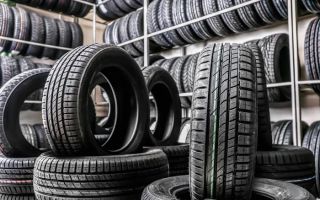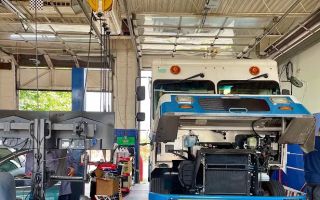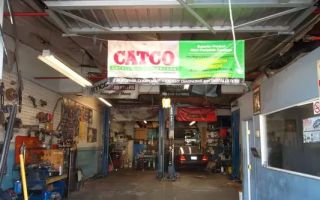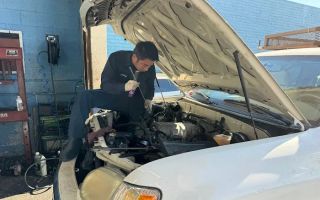How to Know if Your Tire Needs to Be Replaced After a Flat: Essential Tips for Drivers
- Understanding Tire Damage
- When to Replace a Flat Tire
- Common Signs of Tire Damage
- Assessing Tire Wear
- Can You Fix or Replace Your Tire Yourself?
- How to Avoid Tire Issues in the Future
- Contact Rescue & Towing for Professional Help
Getting a flat tire can be one of the most frustrating experiences for any driver. Not only do you have to deal with the inconvenience, but you also need to figure out whether the tire is salvageable or if it needs to be replaced. If you’re unsure, don’t worry – you’re not alone. In this article, we’ll walk you through how to know if your tire needs to be replaced after a flat, common signs of tire damage, and the best steps to take to keep your vehicle safe on the road.

MR. TIRE INC.
2078 New York Ave, Huntington Station, NY 11746, USA
1. Understanding Tire Damage
When a tire goes flat, it doesn’t always mean that it needs to be replaced. Depending on the severity of the damage, a flat tire could be easily repaired. However, certain types of damage make replacement the only viable option. Understanding what causes tire damage can help you make informed decisions about your tires and when they need attention.

MR. TIRE INC.
2078 New York Ave, Huntington Station, NY 11746, USA
1.1. Punctures and Tears
A puncture caused by sharp objects like nails, glass, or debris may result in a slow leak or an instant flat. If the puncture is small and in the tread area, it might be repairable. However, if the puncture is large or the damage extends to the sidewall, the tire will likely need to be replaced.
1.2. Sidewall Damage
The sidewall of a tire is much more vulnerable to damage than the tread. A cut or bulge in the sidewall can weaken the tire’s structural integrity, and in most cases, a sidewall issue means the tire needs to be replaced. Sidewall damage doesn’t allow for a reliable repair, as the structural strength of the tire is compromised.
1.3. Blowouts
A tire blowout occurs when the tire bursts suddenly, often due to a combination of pressure and heat, or as a result of pre-existing damage. Blowouts are dangerous and usually require a full tire replacement. If you’ve experienced a blowout, you should replace the tire immediately, even if it’s only one tire that’s affected.
2. When to Replace a Flat Tire
So, how do you know when it’s time to replace your flat tire instead of just repairing it? Here are a few scenarios where tire replacement is necessary:
2.1. When the Damage is Irreparable
If the puncture is too large, or the tire has sidewall damage, it’s time to replace it. These types of damage can compromise the tire’s safety and performance. Even if you can temporarily inflate the tire, it’s not safe to drive on it, and the tire should be replaced immediately.
2.2. When the Tire Has Exceeded Its Lifespan
Every tire has a limited lifespan. Even if you don’t experience a flat tire, tires age and wear out over time. If your tire is several years old, or if the tread has worn down significantly, it may be time for a replacement. Check your tires regularly for signs of aging, such as cracks or loss of tread depth.
2.3. If You’ve Had Multiple Flats
If your tire has already gone flat multiple times due to similar causes, it may be time to replace it. Repeated damage can weaken the tire, making it more susceptible to future issues.
3. Common Signs of Tire Damage
There are several indicators that a tire may be damaged beyond repair, which would mean it needs to be replaced:
3.1. Uneven or Worn Tread
The tread on your tire is designed to provide traction. Over time, the tread wears down, especially if you drive a lot or your car is misaligned. Uneven tread wear can indicate alignment issues or improper inflation. Once the tread is worn down to 2/32 of an inch, it’s time to replace the tire.
3.2. Vibration or Noise While Driving
If you notice vibrations or strange noises while driving, this could be a sign of an issue with your tire. The cause could range from a flat spot to internal tire damage. If this happens, it’s essential to inspect your tire thoroughly and replace it if necessary.
3.3. Cracks or Bulges
Visible cracks or bulges on the sidewall or tread area indicate that the tire’s structural integrity has been compromised. These issues are signs of weak spots that can cause blowouts. If you notice any bulging or cracking, it’s time to replace the tire.
4. Assessing Tire Wear
When assessing whether your tire needs to be replaced, it’s important to examine the depth of the tread. A quick way to check is to use the “penny test.” Simply insert a penny into the tread with Lincoln’s head facing down. If you can see the top of his head, it’s time to replace the tire. This means the tread has worn down too much to provide adequate traction.
5. Can You Fix or Replace Your Tire Yourself?
If you’ve experienced a flat, you might be wondering if you can fix it yourself. In some cases, a simple puncture can be repaired using a plug or patch, but this is only possible if the damage is in the tread area and is small. For more significant damage, like sidewall punctures or bulges, the tire should be replaced immediately. If you’re unsure, it’s always a good idea to consult with a professional.
6. How to Avoid Tire Issues in the Future
Preventative care is key to avoiding flat tires and other tire-related issues. Here are a few steps you can take to extend the life of your tires:
6.1. Regular Tire Maintenance
Make sure to check the tire pressure regularly, as under-inflated tires wear out more quickly. Regular rotations and balancing will also help ensure even wear, prolonging the life of your tires.
6.2. Be Mindful of Road Conditions
Avoid driving over potholes, sharp debris, or rough terrain whenever possible. These can cause damage to your tires, leading to flats and other issues.
6.3. Replace Tires in Pairs or Sets
If you need to replace a tire, it’s often a good idea to replace it in pairs or sets, particularly if the wear on the remaining tires is uneven. This ensures better handling and performance on the road.
7. Contact Rescue & Towing for Professional Help
If you’re unsure about the condition of your tire or need assistance with a flat tire, don’t hesitate to contact professional roadside assistance services. Rescue & Towing offers reliable and fast tire repair or replacement services, helping you get back on the road quickly and safely.
Whether you need a new tire, a repair, or emergency towing, having the right support can make all the difference. Stay safe and avoid further damage to your vehicle by calling for professional help when needed.























